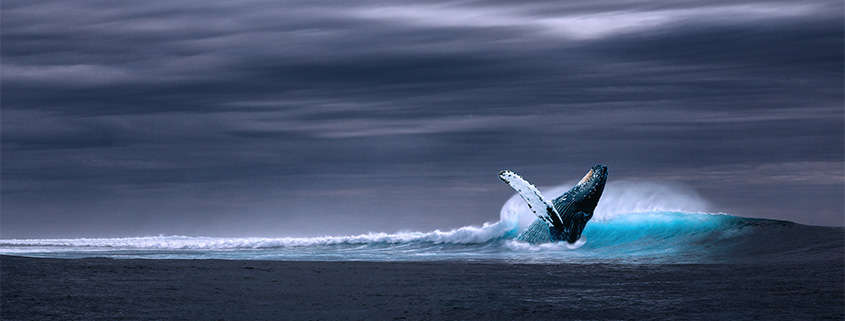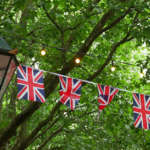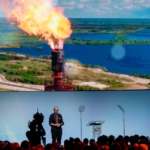The earth is the Lord’s

A Presidential Address to the Diocesan Synod
11 June 2022
The earth is the Lord’s and everything in it,
The world and all those who live in it
For he has founded it on the seas
And established it on the rivers
(Ps 24)
Sunday by Sunday we declare our faith in these words:
We believe in one God, the Father, the Almighty
Maker of heaven and earth
Of all that is, seen and unseen.
The earth is the Lord’s and everything in it. God has made the heavens and the earth and has made them good and wonderful: from blue whales to butterflies, from ears of wheat to piglets, from flowing clear water to fine wine, from majestic mountains to a snail, from galaxies to atoms.
Humankind is part of creation, made in the image and likeness of God. Part of our role is to tend creation: the first and recurring image of paradise in scripture is a beautiful garden. The word paradise itself is a Babylonian word meaning walled garden. A garden is not an entirely natural thing. It does not happen by itself.
A garden represents human creativity and labour combined with the glory and wonder of creation to create places of peace and tranquillity and wonder.
I’m not a great gardener but my dad was. Over the course of his life he created two astonishing gardens – the first was in the semi he bought with my mum in 1961. The garden had been a field. Some of my earliest memories are “helping” him lay out paths and lawns and build a greenhouse and put in bedding plants and vegetables. His second garden was at the back of a bungalow he moved to in retirement. It was a small plot with a steep gradient. Over the years he filled it with flowers, so much so that it won prizes for the housing association he was part of.
The earth is the Lord’s but part of our purpose is to shape the earth – but in good ways, in ways which preserve the diversity and wonder of creation, in ways which are fair to all the people of the earth, in ways which protect the earth, our fragile home, for future generations. All of God’s children have a right to clean air, clean water and good access to nature.
A new era
For a hundred years and more now we have been living in a new era which scientists call the Anthropocene, in which one species, humankind, is shaping the earth and that shaping has become more for harm than for good. We see that in the pollution in the oceans; in the invisible blanket of greenhouse gases which is the cause of global warming; in pollution in cities which causes tens of thousands of premature deaths each year; in the extinction of whole species; in the rise of zoonotic diseases, which transfer from animals to humans and cause devastating pandemics.
We see the consequences of environmental catastrophe everywhere. Climate change is a lived reality now the whole world over. In our link diocese of Kimberley and Kuruman the effects in terms of drought and changes to harvests are devastating. Our own country is seeing rising numbers of extreme weather events year by year: storms and floods and fires which devastate communities and will steadily grow worse. More and more of our national wealth will need to be invested in the mitigation of these effects and in adaptation in order to continue anything like our present way of life.
We have only a limited time to take action. The world is not at present on course for net zero admissions by 2050 and limiting global warming to 1.5 degrees. That target is slipping away from us. It seems more likely that global warming will hit 2 degrees or higher by the second half of this century, and the effects will be devastating for life on earth – the scenario envisaged by our dinosaur friend.
We should be in no doubt whatsoever that there is a strong and deep possibility of change: this can be done. We can respond to this crisis. I go back to the image of the gardener both in Genesis and in our own experience. We know how to work with creation to do remarkable and beautiful things. We know how to be just stewards of the earth, to tend and heal the environment. We know how to work together. We know how to bring hope to the greatest challenge of the age. We know how to work globally and locally.
Every person and every household
The global climate emergency demands hopeful positive leadership from national and local government. This crisis needs to inform every law and every policy and every department of government. We are not there yet, not nearly there. The crisis needs to inform every single local government area and response. The crisis needs a response from every business, every school, every third sector organisation and every church and diocese. It is only by working together across the United Kingdom and across the world that we can change the future.
The need for action is urgent. The major part of the journey to net zero needs to happen in the next ten years or at the latest by 2035 to limit global warming to 1.5 degrees. In effect this means now.
The climate crisis demands a response as well from every household and every person. The Climate Change Committee in the United Kingdom estimate that more than 60% of the change required to get to net zero involves personal behavioural change by individuals and communities: change focussed in the three areas of transport, home heating and diet. I am privileged to be part of the House of Lords Select Committee on the Environment and Climate Change. For the last six months we have been hearing evidence weekly on the theme of behaviour change and climate and the role of government in encouraging that change. It has been a fascinating and sobering exercise: we are nowhere where we need to be as a society, and government has a long distance still to travel in prioritising climate. We are currently drafting our report and we are due to publish in July.
The churches and the other faith communities globally have a huge amount to bring to the debate. We bring hope to counter despair and anxiety. We bring our experience of being global and local communities. We bring the potential of educating tens of thousands of climate ambassadors in our schools and churches. We bring practical ingenuity. We bring the disciplines of understanding personal and behavioural change: repentance and amendment of life. We bring a passion for justice.
It’s easy to be trapped by our despair and to do nothing. The problems seem so big. But we need to understand this. For the world to combat climate change effectively, the leadership will need to come from the Western democracies, from the larger economies. We have the responsibility as the largest emitters; we have the capacity for investment; we have the influence. Britain has a key role to play globally in climate diplomacy and in the example we set across the world.
As the Church and especially as the Church of England, we can play our part in the journey to net zero through our example and leadership, but this has to be through our actions as well as through our words. We can raise our voice politically. We can encourage climate scientists. We can educate our children and our congregations. We can reduce and limit our emissions.
So what actions are next for us on this journey?
I am very thankful for the leadership of Bishop Olivia and our Environmental Task Group who are leading this part of our common vision, which flows out of our commitment to be a more Christ-like Church for the sake of God’s world: contemplative, compassionate and courageous.
The group have recently produced a new strategy, and I commend that to the Synod wholeheartedly. The strategy has these six commitments:
- Increasing holistic care for creation through eco church and eco diocese. We have now met all the criteria for the Bronze Eco Church award as a diocese, and we await A Rocha’s decision, but if your PCC has not yet engaged with the programme then please aim to do so before the end of the year.
- Ensuring that everyone has access to resources for prayer, advocacy and action. That work is ongoing through the task group and our communications team.
- Nurturing everyday faith and discipleship and creating clear leadership pathways. Again, ongoing, but I will say more about a new step we are taking in a moment.
- Promoting resilience as churches, schools and communities increasingly grapple with the effects of climate change. The team are currently supporting churches through the challenge of rising energy bills through energy audits.
- Achieving our net zero targets – which is happening across a range of different activities one of which we will focus on later in this Synod.
- Ensuring alignment with the call for justice and working in partnership wherever we can.
As a whole team, we recognise the rural nature of our diocese and we are working to understand the positive impact of our land and its biodiversity potential as a vital part of our care for creation. Both Bishop Gavin and I have recently spent time at FarmEd – a wonderful centre for agricultural innovation and learning in the Chipping Norton Deanery.
Safeguarding the integrity of creation
There are two further areas I want to highlight for the Synod this morning.
The first is the policy before us to insulate our vicarages as part of reducing our emissions and better caring for our clergy. This is a major, major investment and project, the biggest project we have yet attempted in our common vision programme. It is vital if our other environmental work is to have credibility in our wider society. I believe the world and other parts of the church will take notice of such a major investment prompted by this agenda of care for creation.
The second is a change I am authorising under Canon B5 to the Service of Baptism and Confirmation and Renewal of Baptismal Promises with the full support of my area colleagues and the Chair of the Liturgical Commission, the Bishop of Exeter.
As most people will know, services of Baptism and Confirmation contain words of commissioning. These are the words we use in these services and in the Renewal of Baptismal Promises on Easter Eve:
Those who are baptised are called to worship and serve God.
Will you continue in the apostles’ teaching and fellowship,
in the breaking of bread, and in the prayers?
With the help of God, I will.
Will you persevere in resisting evil,
and, whenever you fall into sin, repent and return to the Lord?
With the help of God, I will.
Will you proclaim by word and example
the good news of God in Christ?
With the help of God, I will.
Will you seek and serve Christ in all people,
loving your neighbour as yourself?
With the help of God, I will.
Will you acknowledge Christ’s authority over human society,
by prayer for the world and its leaders,
by defending the weak, and by seeking peace and justice?
With the help of God, I will.
May Christ dwell in your heart(s) through faith,
that you may be rooted and grounded in love
and bring forth the fruit of the Spirit.
Amen.
There is nothing in this Commission about the environment and care for the world. As Pope Francis and many others have argued, this now has to be an integral part of the discipleship of every Christian.
I am therefore authorising under Canon B5 an additional question for this Commission, based entirely on the fifth Mark of Mission of the Anglican Communion:
Will you strive to safeguard the integrity of creation, and sustain and renew the life of the earth?
With the help of God I will.
As bishops, we will use this new question as part of every confirmation service from now on – I’ve introduced it already at two Oxford confirmations over the last two Sundays. I will be writing to clergy inviting them to include it in local baptism services where appropriate and to teach people what it means as part of baptismal preparation. We will also be doing what we can with the Liturgical Commission to encourage other dioceses to pick up the question.
We should be full of hope as we respond to the environmental and climate crises. Change is possible. Humankind can do this.
But we need to do it now. Every government, every business, every charity, every organisation, every church and every family need to play their part.
The earth is the Lord’s and everything in it,
The world and all those who live in it
For he has founded it on the seas
And established it on the rivers.
Care for creation
Sign up for the monthly newsletter from the diocesan environment team, packed with updates, events and valuable resources for anyone and everyone who’s ready to start thinking about care for God’s world.
Read the press release on the diocese’s investment in clergy housing and Bishop Steven’s ad clerum on the new baptismal promise.
Don’t choose extinction
Watch a video from the United Nations Development Programme.


